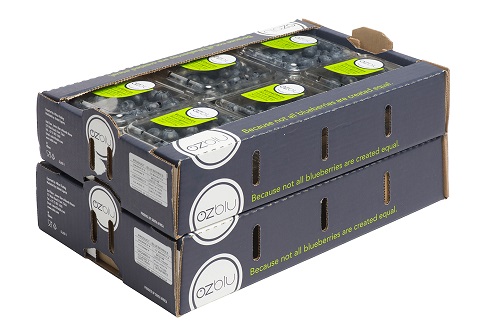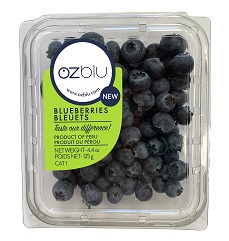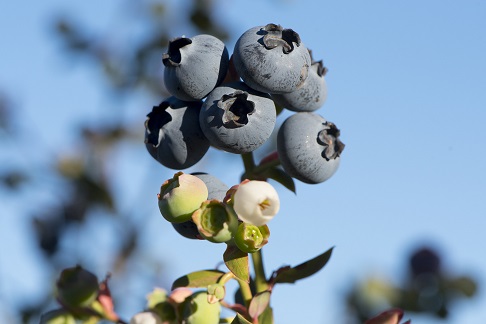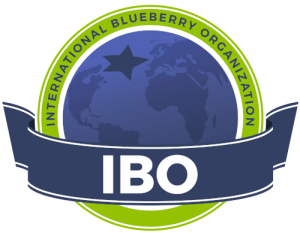For international fruit exporter United Exports, the South African blueberry harvest has come to an end. 2019 offered another successful season in which the industry’s total volumes, as of week 48, are up more than 40% on last year, reaching 11,400 tonnes this season thus far.
 United Exports has become well known for its OZblu® blueberry brand, but the company also markets niche stone fruit varieties. It holds the South African licenses for the OZPeach varieties from Australia – developed by renowned breeders, Dave and Leasa Mazzardis of Natures Select – as well as Burchell varieties from California.
United Exports has become well known for its OZblu® blueberry brand, but the company also markets niche stone fruit varieties. It holds the South African licenses for the OZPeach varieties from Australia – developed by renowned breeders, Dave and Leasa Mazzardis of Natures Select – as well as Burchell varieties from California.
“Stone fruit is a lot more sensitive as a commodity and the drought on some of our growers’ farms is still having an impact, but we’re still happy with the season. We’re a very niche player, supplying to UK retail, a bit of Europe and the Middle East. It’s a category that’s growing by an average of 10% yearly, mostly peaches and nectarines, with some apricots,” says Roger Horak, founder and global CEO of United Exports.
The company’s stone fruit exports run through to the end of March. Roger notes that their blueberries peak in August/ September, and are followed soon after by their early peaches in September/October, and then plums, nectarines, sugar-prunes and late-season peaches in the first quarter.
 Turning his focus to blueberries, Roger states that they have invested significantly in South Africa. "We’re still very bullish about South Africa as a production destination to export to the Northern Hemisphere. South Africa is ideally positioned as a supplier for the Northern Hemisphere.”
Turning his focus to blueberries, Roger states that they have invested significantly in South Africa. "We’re still very bullish about South Africa as a production destination to export to the Northern Hemisphere. South Africa is ideally positioned as a supplier for the Northern Hemisphere.”
He continues: “South Africa is on the map now as a blueberry supplier but there’s still a long way to go in terms of having the supply chain in place for all the different components that will support a world-class industry – for example chemical and biological registration. The market is becoming increasingly competitive; there’s ongoing expansion which is a great story, particularly if you look at, for example, what the ratings agencies are saying of the South African economy, and disinvestment in the mining sector for example.”
The vast majority of OZblu® blueberries are exported to the UK and Europe in addition to the Middle and Far East. “The UK to date has been the benchmark in terms of how they manage the berry category in general, and blueberries specifically, in terms of pack size and so forth, however, many of our European receivers have lifted their blueberry offering and in some cases have exceeded the UK.”
“You’re starting to see a bigger switch by retailers towards new varieties such as OZblu®. There’s a recognition of the superior all-round quality that these genetics deliver to the end customer.”
Sea freight strategy
The company trialled the first ever sea freight shipment of South African blueberries to the United States last year.

“Even though the shipping time was five weeks, it was 100% successful. What’s more impressive is that this was achieved without making use of any controlled atmosphere packaging or specialised containers, another clear benefit of the OZblu® genetics. For the future, the USA is an option, if the economics make sense and the supply window is there,” Roger notes. “We’ve got our footprint in South America now.”
“Our strategy has always been to focus on sea freight, which now accounts for a large proportion of our trade, much more than five years ago. We really have grown our sea freight component. It’s not just our varieties that make it possible but also our production techniques that we’ve honed over many years.”
The company has started the process of investigating and quantifying the carbon footprint of their blueberries that go by sea freight, a footprint which is below that of blueberries that go by airfreight.
20/12/2019

